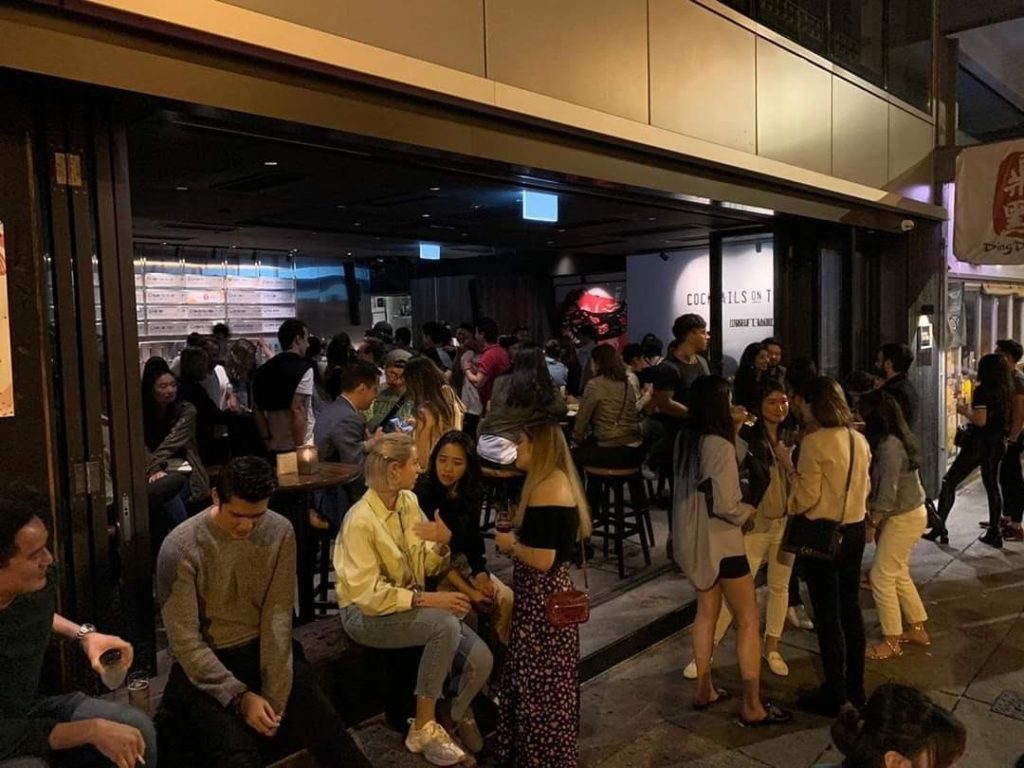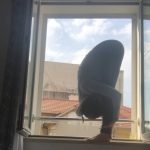April 3, 2020 – Do foreigners in Croatia feel more or less safe sitting out COVID-19 here than in their home country, and what are their experiences? A new series on TCN, with Valeria Teo from Hong Kong in Split as our 17th contributor.
Oxford University recently published some research on government responses to coronavirus which showed that Croatia currently has the strictest measures in the world. While inconvenient, this is a good thing in terms of reducing the spread of the virus, and I am certainly not alone in my admiration of the official Croatian handling of this crisis in recent weeks, both in terms of action and communication.
But what do other expats here think? And how does it compare with the response in their home country? Would they rather sit this one out here or there? In the first of a new series on TCN, we will be featuring expats from all over the world to see what their views are on life in corona Croatia rather than back home. So far we have heard from expats in Croatia from Romania, USA, Ireland, UK, Mexico, Argentina, Spain, Singapore, Holland, Canada, India and Germany. Next up, Valeria Teo from Hong Kong in Split.
If you would like to contribute to this series, full details are below. Now, over to Valeria.
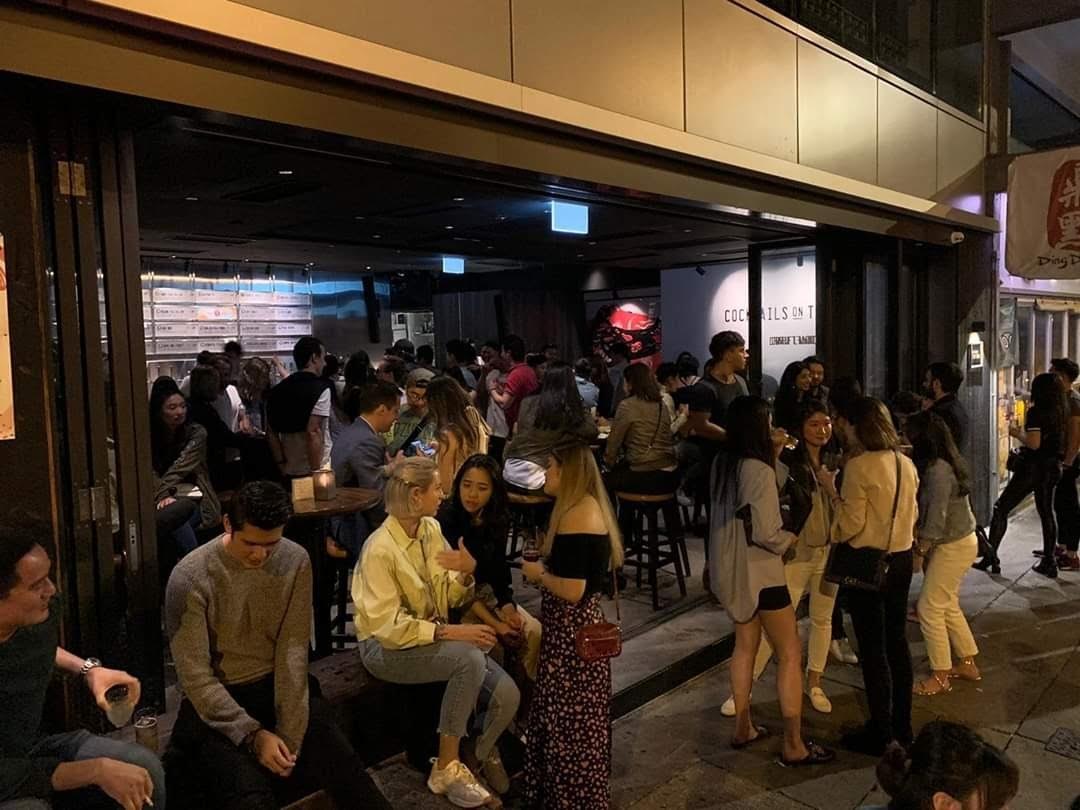
(The most popular hang out place for expatriates in Hong Kong a week or so before all bars in Hong Kong were forced to close.)
Firstly, how are you? Are you alone/with someone? Tell us a little about your situation and sanity levels.
Having previous experience with SARS in 2003 in Hong Kong helps me enormously in this pandemic even though the situation is a lot worse than last time. I have no problem at all with self isolation. When I was writing my books, I locked myself up for months each time. But it is a whole new experience for the two Croatians who are trapped with me. I let the older one do all the grocery shopping to keep his sanity and mine. The younger one, aged 8, misses his school friends and the play time with them. I have no choice but to spill some bold truths about the coronavirus. I feel triumphant when he wants to keep me safe by staying home willingly. But my nerves are still under constant test when his homework shows up in the inbox every day. Having a dad who understands the language but is not that academically savvy plus a mum who grasps schoolwork but is not that lingually fluent, my boy loses it from time to time as well. But we always get through the day after some typical Dalmatian swearing. Thank God, there is so far no harm nor damage.
What do you think about the economic measures the government is taking, are they helping your business?
I have not really looked into that, to be honest. Late March or early April is usually the time I get out of my hibernation to take care of guests in the apartments. Our neighbourhood is so quiet that we can sometimes hear the other apartment owners whine about the lost pre-season. Luckily, I have more operating expenses than fixed ones. But I do understand that it hits many people badly. A responsible government should really help weather the storm. I am glad that the Croatian government is doing that.
When did you realise that corona was going to be a big issue?
I knew that it was something serious as soon as it got worse in early January in Wuhan. I read news and received tonnes of messages from Hong Kong. There were reports about the virus in December. When the Chinese government said that it was not serious, people in Hong Kong smelt something fishy. When Wuhan was locked down on January 23, I was thinking that SARS 2.0 was on the way.
Although I thought that most European countries were not well prepared in late January or early February, I did not expect that it would be that bad in Europe. When the infection numbers in Italy surged in a couple of days after February 19 and new cases started popping up all over Europe, I realized that all hell had broken loose.
What is your impression of the way Croatia is dealing with the crisis? How safe do you feel?
The outbreak in Italy obviously alerted the Croatian government. The disaster in Italy started with one unchecked infected person. Croatia cannot afford the same slip. I am pretty impressed with how the Croatian government is dealing with the crisis so far. When people have no experience in pandemic or infection control, I do believe that governments at all levels have to do more to prevent the spread in the community. The shops have also adapted quickly to unprecedented hygienic measures. It is easier to maintain social distance in Split (than in Hong Kong). All in all, I feel safe here. The only wish I have is that Croatia increases testing sooner rather than later. I do believe that there are asymptomatic carriers everywhere in Croatia, Europe, Asia and Americas. Extensive testing and wearing masks are unavoidable if we want to return to any normality.
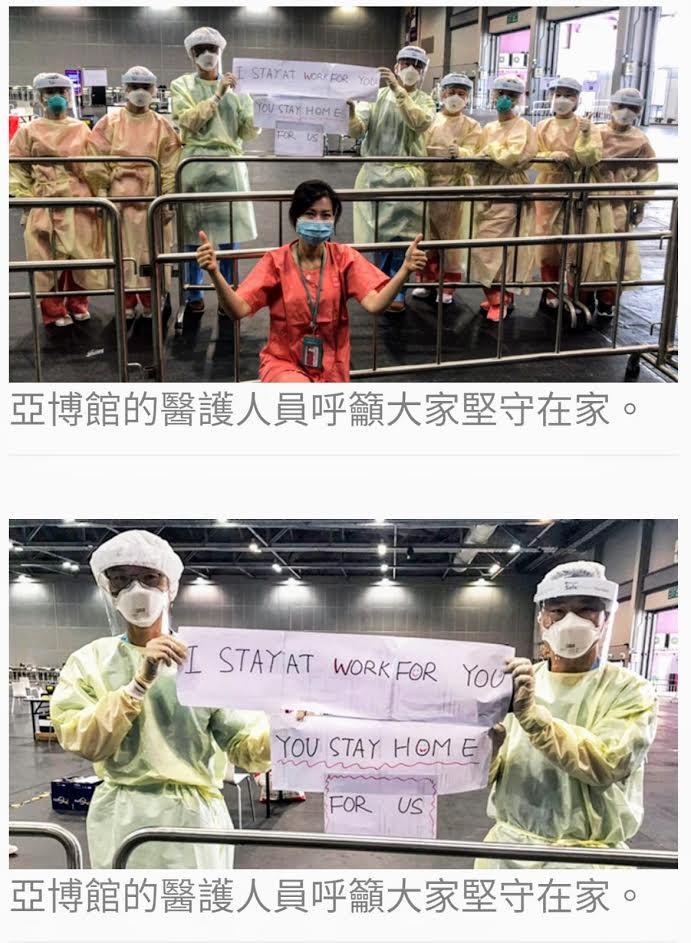
(Hong Kong medical workers working at a temporary screening centre next to the airport.)
Now compare that to your home country and how they are handling it. What is Croatia doing better/worse?
SARS was a total nightmare and a painful lesson for people in Hong Kong. Hospitals were collapsed and 299 people died even though the number of confirmed cases was “merely” 1755 persons over a 4-month period. Therefore, epidemiologists and the citizens were io full alert this time even though the Hong Kong government was (and still is) slow in action every step of the way. People resumed all the hygienic and disinfection practices on both personal and community levels to protect themselves and each other. Most importantly, a large number of Hong Kong people do not believe what WHO says nor follow what WHO recommends. When people know how the last and current Director-General were installed, it is the only sensible thing to do. Hong Kong has its own top epidemiologists and medical experts with experience in combating such an epidemic. So the people, instead of the government, are leading the fight.
The Croatian government is actually doing much better and more than the Hong Kong government (who has some other political agenda than simply fighting this epidemic). The Croatian Health Minister has done what needs to be done so far. It is really important to have a leader who knows what he is doing in such an ever-evolving emergency. It instills confidence in times of great uncertainty.
The general public in Croatia has some catching up to do though. But I do not want to be too judgmental. I still maintain that the Chinese Communist Party regime and its puppet, WHO, should bear the major responsibility in the present mess.
A bigger surprise for me is the number of medical professionals who got infected. According to the numbers released by the Splitsko-dalmatinski zupanija on April 2, 25% of the 148 confirmed cases are medical workers. Community infection kicks off quickly once the virus gets to medical workers in the hospitals. It happened in Hong Kong in 2003. And Italy is the latest victim. History indeed repeats itself. With this year’s experience, everybody should hopefully be better prepared next time. And yes, I do believe that there will be a next time.
What about official communications from the authorities, compared to your home country?
Both Croatia and Hong Kong hold daily press conferences to give the latest figures and updates. The official website for the coronavirus in Croatia also helps a lot. I do not use the Viber message. There are already too many WhatsApp messages from various friends’ groups. But I’d like the Croatian officials to disclose sources of infection again. Stories of patients being stigmatized are difficult to read.
What’s the one thing you wish you had taken with you into self-isolation?
I do not think that we are lacking anything despite the lockdown. Living near the city centre of Split helps a lot.
One thing you have learned about yourself, and one thing you have learned about others during this crisis.
Getting older helps me go through this pandemic with peace of mind. I worried a lot more about the infection, job prospects, financial and economic aftermath 17 years ago. It is not that easy as I am the worrying type.
As the epidemic is sweeping across the globe, I see the good, the bad and the ugly in different countries in a fairly similar fashion. This minute and inanimate virus shows us true indiscrimination. So human beings can definitely do better.
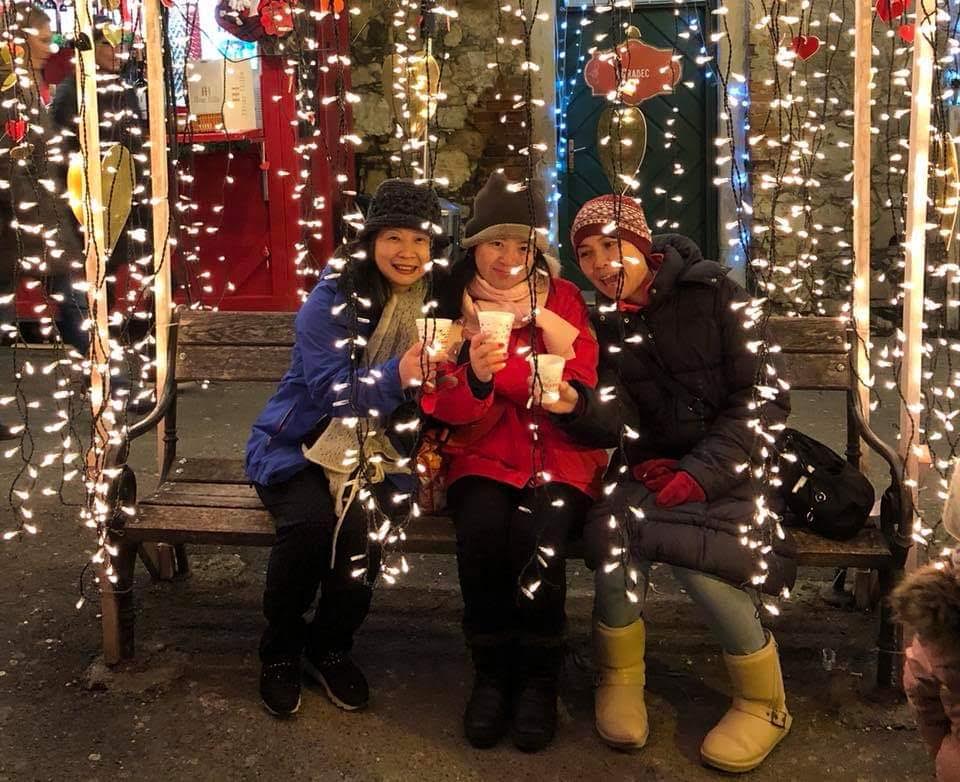
About Valeria Teo:
I left Hong Kong and moved to Split in January 2011 after meeting my husband outside kazaliste in 2007 and getting married in 2008. We have been welcoming guests to our apartments in Radunica since 2014. I also work as a tour leader whenever I feel like having a break from the craziness of being a full-time work at home mother. You may check out and follow our Facebook page.
Thanks, Valeria, stay safe and see you on the other side.
TCN is starting a new feature series on foreign experiences of sitting out covid-19 here in Croatia compared to their home country. If you would like to contribute, the questions are below. Please also include a para about yourself and where you are from, and a link to your website if you would like. Please also send 3-4 photos minimum to news@total-croatia-news.com Subject Corona Foreigner
If you would be interested to record a video version for our partners www.rplus.video please let us know in the email. Thanks and stay safe.
Foreigners Self-Isolating in Croatia: Do You Feel Safer Than in Your Home Country?
Firstly, how are you? Are you alone/with someone? Tell us a little about your situation and sanity levels.
What do you think about the economic measures the government is taking, are they helping your business? (PLEASE IGNORE IF THIS DOES NOT AFFECT YOU)
When did you realise that corona was going to be a big issue?
What is your impression of the way Croatia is dealing with the crisis? How safe do you feel?
Now compare that to your home country and how they are handling it. What is Croatia doing better/worse?
What about official communications from the authorities, compared to your home country?
What’s the one thing you wish you had taken with you into self-isolation.
One thing you have learned about yourself, and one thing you have learned about others during this crisis.
TCN has recently become a partner in Robert Tomic Zuber’s new R+ video channel, initially telling stories about corona experiences. You can see the first TCN contribution from this morning, my video from Jelsa talking about the realities of running a news portal in the corona era below. If you would like to also submit a video interview, please find Robert’s guidelines below
VIDEO RECORDING GUIDE
The video footage should be recorded so that the cell phone is turned horizontally (landscape mode).
There are several rules for television and video news:- length is not a virtue- a picture speaks more than a thousand words
In short, this would mean that your story should not last more than 90 seconds and that everything you say in the report should be shown by video (for example, if you talk about empty streets, we should see those empty streets, etc.).
How to do it with your cell phone? First, use a selfie camera to record yourself telling your story for about a minute and a half. Ideally, it would be taken in the exterior, except in situations where you are reporting on things in the interior (quarantine, hospital, self-isolation, etc.). Also, when shooting, move freely, make sure everything is not static.
After you have recorded your report, you should capture footage that will tell your story with a picture, such as an earlier example with empty streets.
One of the basic rules of TV journalism is that the story is told in the same way as a journalist with his text. Therefore, we ask you for additional effort. Because we work in a very specific situation, sometimes you may not be able to capture footage for each sentence of the report. In this case, record the details on the streets: people walking, the main features of the city where you live, inscriptions on the windows related to the virus, etc.
The same rules apply if you are shooting a story from your apartment, self-isolation, quarantine. We also need you to capture footage that describes your story.
When shooting frames to cover your reports, it is important that you change the angle of the shot (in other words, shoot that empty street from several angles). Also, when shooting a detail, count at least five seconds before removing the camera to another detail.
The material should be about 5 minutes long (90 seconds of your report + frames to cover your story).
After recording everything, send us to Zagreb, preferably via WeTransfer to rplus.video@gmail.com

